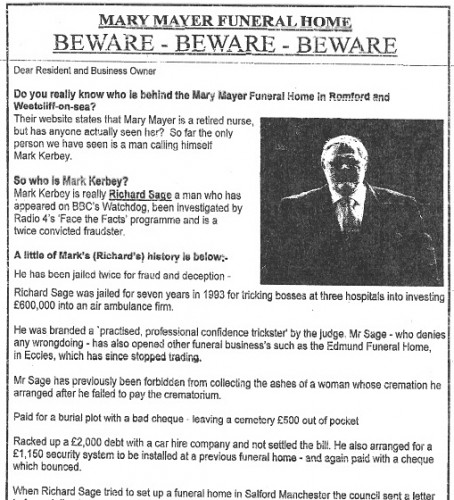Dear Ian and Frank,
It was good to see you commenting once more on the blog. It shows that people of all shades of opinion read it, not just a clique.
I hope you appreciate the way I allow you to say whatever you like, however abusive (so long as it isn’t also libellous).
Do you ever wonder why I don’t just bin your more abusive comments as soon as they appear? After all, they are often personal, they can be pretty hurtful, they are usually very negative and they contribute nothing to the debate.
I let you comment because I believe in free speech and because I am interested in what you have to say. I know that you speak for many people in the industry.
I hope you have some respect for the way in which I expose everything I say to comment. This is because I don’t think I am always right, and because I like to be put right where I have got it wrong. I hope you’ll agree that it takes guts and open-mindedness to do that.
I hope you respect the way that I do not hide my identity or shelter my contact details. I take personal responsibility for everything I say, and I make myself vulnerable by doing so.
Which is more than I can say for you.
The funeral industry is a service industry. Service users have a right to talk about it. So I want to suggest to you that your aggressive defence of the industry you clearly love is unhelpful and mistaken. You make it look small-minded and nasty.
So come on. Step up. Let’s have reasoned debate and a constructive dialogue. Stop being so angry.
We all want what’s best.
With best wishes,
Charles

